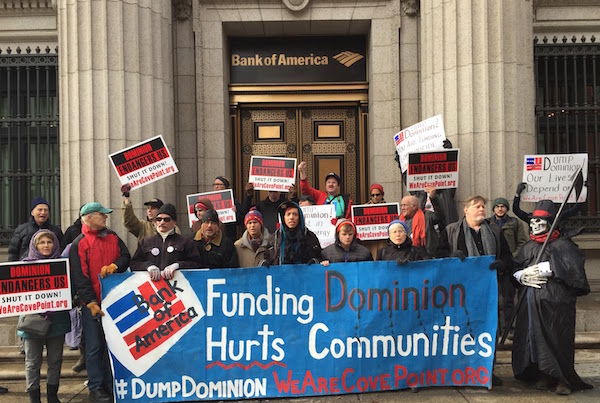Bulletin 680
Subject: Ruling-class fantasies are
working-class nightmares.
25
January 20!6
[“JOIE” when read upside down in a mirror reflection]
Grenoble, France
Dear
Colleagues and Friends of CEIMSA,
This
new year has delivered increased dangers to humanity and at the same time my 70th
birthday. Like many of my generation, I have out lived my parents and my
grandparents. The human progress in
physical health, daily diets, longevity, education, communication and creature
comforts, etc. for most people on our
planet is undeniable. Still the uneven development and the regressive policies of
reactionary political leaders continue to cause unjustifiable misery for
millions of people around the world. The retro-ideologies of neo-liberalism and
nationalism, coupled with religious bigotry and ethnic and gender prejudices, serve as a
cover for the relentless private profit motive which remains the notorious motorforce of our political economy. On this front,
despite the obvious progress in science and technology, we have made no
advance and indeed are moving blithely toward irreversible decline (perhaps,
in the opinion of some experts, toward the self-inflicted death of our species).
In
the midst of today’s insane “sanity” --to
coin a Foucaudian concept—we engage in somewhat predictable responses, which
offer new opportunities to our superiors,
i.e. those who have placed themselves above us in an imaginary political power pyramid
of “superiors/inferiors” –financially, intellectually, culturally, militarily, and/or biologically dominant—to profit even more.
Several
years ago, the famous US foreign policy historian, William Blum, author of Killing Hope: U.S. Military and C.I.A.
Interventions Since World War II-- ,
DANCING ON THE ELECTRIC GRID
by Per Fagereng
Picture
this standard experiment in psychology: A group of rats is placed on an
electric grid and the voltage is slowly increased. After a while the rats feel
a burning tingle in their feet. The experimenters up the voltage some more, and
watch the rats dance and bite each other.
The
experimenters are seeking knowledge, and the rats’ pain is presumably worth it.
The experimenters don’t blame the rats for fighting each other, or punish the
more aggressive ones. They know that individuals react to pain in different
ways.
Now
picture the economic terrain as a different kind of pain grid. Instead of
electric shocks, the inhabitants experience job loss, higher prices, less pay,
overwork, polluted neighborhoods and so on. Controlling the grid are not
psychologists, but CEOs and bankers. Instead of knowledge, they are seeking
profit. And so they up the pain, but not because they want to hurt people. They
are really trying to up their profits, and the pain is a side effect.
After
a while people on the grid do nasty things to each other, everything from
domestic violence to immigrant-bashing to crime. Unlike the rats, the people
get blamed for their misbehavior. We are told to point our fingers at the victims
on the grid, instead of at the economic rulers who keep increasing the pain.
You’d
think that the CEOs and bankers would ease up on the pain, but think again.
They continue to demand more sacrifice from the poor, knowing full well how
they’ll react.
Would
you call this a big conspiracy? Or the sum of many small conspiracies? Maybe it
doesn’t matter that much. I’m not a mind reader. The point is, the economic
rulers pursue their profits and they know the consequences. So to that extent,
they are choosing to inflict pain.
Despite
the grave shortcomings of our political economy, faults which are becoming
exceedingly apparent, we extend to CEIMSA readers our wish for a fulfilling and
effective year of rebellion.
To
further this objective, we are honored to share with you the following 15
items which can only contribute to a more complete understanding of the practico-inert which presents a challenge to us on a daily basis.
in solidarity,
Francis Feeley
Professor of American Studies
University of Grenoble-3
Director of Research
University of Paris-Nanterre
Center for the Advanced Study of American Institutions and
Social Movements
The University of California-San Diego
a.

===========
b.
Another Fine Mess: NATO’s 'Laurel
& Hardy Act' In Libya Not Getting Laughs
http://www.informationclearinghouse.info/article44029.htm
by Finian Cunningham
===========
c.
Jihadists Deepen Collaboration in North
Africa
===========
d
Subsistence
societies, globalisation,climate change and genocide:discourses of
vulnerability and resilience
http://www.tandfonline.com/doi/abs/10.1080/13642987.2014.914702
===========
e.
World War 3 is Coming - Shocking Predictions Coming True
https://www.youtube.com/watch?v=3gNLmpjw8iM
===========
f.
From: "Edward S, Herman" <hermane@wharton.upenn.edu>
Sent: Friday, 1 January, 2016 10:56:51 PM
Subject: Ed Herman. Review of Weisbrot's Failed: What the Experts Got
Wrong on the Global Ecoonomy
[Z Magazine, January 2016]
Failed:
What The “Experts” Got Wrong About The Global Economy
By
Mark Weisbrot
(Oxford
University Press, 2015, 293 pp.)
Review by Edward S.
Herman
Mark Weisbrot, a
co-director with Dean Baker of the
Center for Economic and Policy Research (CEPR), has written an
enlightening book that pulls together many of the analyses that CEPR has been
producing over the past several decades.
The book is important and useful because it provides an alternative
framework of analysis to the one used by establishment experts, media and
policy-makers. What is more, this alternative framework and description of
reality is well supported by empirical evidence and is convincing. It is marginalized in the mainstream because
it runs counter to the interests of the
powerful, who over the past three
decades have successfully pushed for a neoliberal world order that scales back
the earlier welfare state advances and pursues trickle-down economics and the
well-being of the affluent.
In fact, an important
feature of Weisbrot’s analysis is his recognition of the extent to which policy
failures have flowed from biased analyses that serve a small elite and punish
the majority, and that policy successes have often followed the loss of power by those serving elite
interests. His first chapter is entitled “Troubles in Euroland: When the Cures
Worsen the Disease,” whose central theme is that the long crisis and malperformance
of Europe’s economies, and especially
the weaker ones of Greece, Portugal, Spain and to a lesser extent, Italy, were
in large measure the result of poor
policy choices. The crisis, which dates
back to 2008, was not due to high sovereign debt, which was only threateningly
high in Greece, but rather the refusal of the policy-making “troika,” the European Central Bank (ECB), European
Community and IMF, to carry out expansionary policies that would allow the poor
countries to grow out of their deficit position.
The Fed met the U.S. crisis
with an easy money program which, when combined with modest fiscal expansion
efforts quickly mitigated this crisis (although the fiscal actions fell short
of what was needed for a full recovery). But the ECB refused to carry out a
comparable expansion policy, and there was no Europe-wide fiscal program in the
EU system. So the poor countries were forced to depend for recovery on an
“internal devaluation” of cutbacks in mainly social budgets, given that
external devaluations for individual countries were ruled out by the use
of a common currency, the euro. This didn’t do the job, so the eurozone
remained in a depressed state, even up to the present.
Weisbrot shows that this
policy failure was deliberate, with the troika leaders--mainly the ECB-- taking
advantage of the weaker countries vulnerability to force on them structural and
policy changes that served the interests of
the international business elite. These changes, including cutbacks on
public outlays for education, health care, social security, and poverty
alleviation, mainly harmed ordinary citizens. So did the enforced pro-cyclical
monetary and fiscal policies themselves, which produced a eurozone crisis of
unemployment and foregone output that
extended for six years and is still ongoing. Weisbrot points out that this
policy and process was a notable application of Naomi Klein’s “shock doctrine,”
according to which elites take advantage of
painful developments (here macro-distress) to force policy changes that could not be
obtained through a democratic process like a national political vote of
approval. Weisbrot shows that the troika leaders were quite conscious of the
fact that they were pursuing “reforms” that the public wouldn’t support outside
of shock conditions.
This process rested on
the undemocratic structure of macro-policy-making in the European community.
One of neoliberalism’s instruments is an “independent” central bank, where
independent means not subject to democratic control. The ECB meets that
standard well, more so than the Fed; and in its statute the ECB is only
required to meet a price stability objective, so it is free to ignore
unemployment and even deliberately increase it. Neoliberal practice is also
encouraged by the 1992 Maastricht Treaty, which placed ceilings on the size of
budget deficits and total public debt (3 and 60 percent respectively). These
unnecessary ceilings are often breached, but provide levers to put pressure on
weaker countries.
The countries victimized
by the ECB’s pressure for painful internal devaluation could in theory exit
from the euro and rely on expansion via currency devaluation and newly feasible
monetary and fiscal expansion. But the risks in
the cutoff of aid and money
market access and the turmoil in any transition are severe, and although Syriza
was voted into power in Greece on an
anti-austerity program and pledge, it did not see fit to exit.. In this
connection Weisbrot discusses the case of Argentina, which, in the midst of a
calamitous recession in 2001-2002 did default on its large external debt, ended
its peg of the peso to the dollar, froze bank deposit accounts, and installed
controls over capital movements. This
caused immediate chaos and a worsened
crisis, but as Weisbrot stresses, after only a single quarter of further GDP
decline (5 percent), freed of its externally imposed constraints, Argentina
began its recovery, taking three and a half years to regain its pre-recession level of output, but
with real growth of some 100 percent over the next 11 years. Greece, which had
a peak GDP loss of 25 percent, and which is still mired in a badly depressed
economy, could hardly have fared worse than Argentina if it had exited years
ago. Whether that option should still be taken is debatable, and Weisbrot
discusses the pros and cons without coming to a definite conclusion, but that
an exit might well have a positive result is suggested by the Argentinian
experience.
A major theme of Failed is the negative impact of
neoliberalism on the growth of low and middle-income countries and the welfare
of their people. A major chapter on
“The Latin American Spring” features evidence that the triumph of neoliberalism
in the years from 1980 to the end of the
1990s was a dismal economic and welfare failure, Per capita GDP growth fell from 3.3. percent per year, 1960-1980 to
0.4 percent 1980-2000, rising again to 1.8 percent in the years 2000-2014. The
earlier period (1960-1980) was one of widespread government intervention in the
interest of rapid economic development; the middle years were dominated by the
triumph of neoliberalism, with widespread imposition of structural adjustment
programs under IMF and World Bank auspices, lowering trade and investment
barriers, and ruthlessly cutting back
development and welfare state programs. The years 2000-2014 saw a
resurgence of economic growth, but not
up to the pre-Reagan years.
Weisbrot shows that the
new spurt in economic growth was closely associated with the victory of leftist governments in quite a few Latin
American states, starting in 1998, He also presents a great deal of evidence
showing that the growth spurt resulted in major improvements in a range of human welfare indicators, like reduced infant
mortality, poverty reduction, more
widepread schooling, enlarged pensions, and
greater income equality. Thus, for example, the Brazilian poverty rate,
which had remained virtually unchanged in the eight neoliberal years before the
victory of the Workers Party, saw a 55 percent
drop in that rate during the years 2002-2013. Similar changes in this
and other welfare measures took place in Ecuador, Bolivia and other Latin
states that escaped the neoliberal trap. Although these changes brought improved lives and
prospects to millions, Weisbrot points out that the U.S. mainstream has played
dumb, refusing to feature and reflect on the significance of this widespread improvement in human welfare
and its strange efflorescence associated with the decline in U.S. and IMF-World
Bank influence in Latin America.
Weisbrot stresses the
importance of democratization and policy
space in these growth and welfare improvements.
The ECB narrowed that policy space in the eurozone, making it difficult
for national leaders to expand or otherwise help improve social conditions.
This reflected the weakening of democracy in the eurozone, with the ECB, EC and
IMF able to make decisions that local democratic governments would not be able
to make. Similarly, the loss of power over Latin governments by the U.S. and
IMF following the left political triumphs from 1998, and their record of anti-people actions and other policy
failures, made for policy space. So also did the rise of China as an economic
power, providing a market for Latin products and loans without political conditions. Weisbrot
notes that the common orthodox position that the democratic West would be more
likely to help poorer countries develop democracies as compared with what
authoritarian China would likely do is fallacious. China lends widely without intervening politically.
The United States has a long record of
support of undemocratic regimes that will serve as its political
instruments and/or provide a “favorable climate of investment.” (This writer’s The Real Terror Network was a dossier of U.S. support of National Security States in Latin America and
of its active involvement in many
counter-revolutionary “regime changes.”)
It is arguable that an
unrecognized benefit of the Iraq and Afghanistan wars was their distracting
U.S. officials from major efforts to
halt the trend toward democratic government in Latin America, although their
participation in the attempts at regime change in Venezuela and their
successful support of an undemocratic coup in Honduras in 2009 shows that the
longstanding anti-democratic policy thrust of the U.S. leadership is not dead.
(Mrs. Clinton of course fully supported the Honduras coup. So we may see a more
energetic pursuit of the traditional U.S. policy of hostility to democracy in
Latin America with her election.)
Weisbrot stresses
throughout the importance of per capita
growth for improving the human
condition. A problem with this premise is that the human race may be growing too fast for ecological
survival. Weisbrot confronts this issue,
arguing that while population growth is a definite negative productivity growth
may on balance be a means of coping by increasing food output and lowering the cost of wind turbines, solar panels and other
improvements. However, increases in incomes tend to increase the preference for
meat, larger houses, and other resource depleters, so that productivity
improvements may, on balance, place even
more pressure on the environment.
Weisbrot is possibly
over-optimistic on this front. But his book is rich in compelling analyses and
data that show how the mainstream live in an Alice-In-Wonderland economic world
and the important things we may do to escape that Wonderland.
===========
g.
The Secure and the
Dispossessed: How the Military and Corporations Are Shaping a Climate-Changed
World
(with three short video)
http://climatesecurityagenda.org/
by Nick Buxton
===========
h.
Why Engineers Can’t Stop Los Angeles'
Enormous Methane Leak
http://motherboard.vice.com/read/why-we-cant-stop-the-enormous-methane-leak-flooding-la
===========
i.
Watch Fracking
Gas Flares Light Up the Earth at Night
by Kaleigh
Rogers
===========
j.
|
|
|
Francis, Koch Out, Science in |
k.
JUSTICE
IN HAITI
Over 140 Haitian-American Groups and
Leaders Warn Kerry: Going ahead with fraudulent elections in Haiti “a recipe
for unrest”
Haiti: Going ahead with Fraudulent
Elections "a Recipe for Unrest"
Institute for Justice and Democracy
in Haiti
l.
Poland: Massive Marches against Growing
Authoritarian Threat from Far-Right
Common Dreams
January 23, 2016
https://mail.google.com/mail/u/0/#inbox?compose=1527461844af900b
m.
A candidate of by and for
the 0.01%: Former NY Mayor Bloomberg,
Fearing a Trump/Sanders
Race,
Eyes Presidential Race
By Dave Lindorff
[
Former NY Mayor Bloomberg, 8th richest
billionaire in the US, is thinking of running for president if the choice is
Trump or Sanders. Here are five pros and cons of having a candidate from the
0.01% running for president of the USA from TCBH! journalist Dave Lindorff. ]
n.
Our George Orwell/Noam Chomsky
Paradox: Let’s Decipher the Doublethink Media and Government Peddles About U.S.
Foreign Policy
http://www.informationclearinghouse.info/article43846.htm
===========
o.
From: "Jim O'Brien"
<jimobrien48@gmail.com>
To: haw-info@stopthewars.org
Sent: Monday, 4 January, 2016 6:34:21 PM
Subject: [haw-info] HAW Notes 1/4/16: links to recent articles of
interest
Links to Recent Articles of Interest
"The Shockingly High Number of Casualties of America's Nuclear
Weapons Program"
By Lawrence S. Wittner, History News Network,
posted January 1
The author is a professor of history emeritus at SUNY Albany.
"Why the Srebnicka Massacre Should Not Be Used as an
Excuse for Intervention"
By David N. Gibbs, History News Network, posted December 27
The author teaches history at the University of Arizona.
By Allen Fromherz, The National
Interest, posted December 23
The author is director of the Middle East Studies Center at
Georgia State University.
"U.S. Cold War Target Lists Declassified for the First
Time"
Edited and introduced by William Burr, National Security
Archive, posted December 22
"The Basics of Islamic Terrorist Ideology"
By Gary Leupp, CounterPunch.org, posted December 18
The author teaches history and religion at Tufts University.
"Churchill's Lesson: We Shouldn't Be Afraid of an Alliance
with Russia against ISIS"
By Walter G. Moss, History News Network, posted December 13
The author is a professor of history emeritus at Eastern Michigan
University.
"Gangsta Jihad" [review of Jason Burke's The New Threat: The Past, Present, and
Future of Islamic Militany]
By Andrew J. Bacevich, The American Conservative, posted
December 16
The author is a professor of history and international relations
emeritus at Boston University.
By Murray Polnar, History News Network, posted November 30
By William R. Polk, Consortium News, posted November
17
The author is a former State Department official and former
University of Chicago history professor.
Thanks to James Swarts, Steve Gosch, and an anonymous reader for
contributing suggestions for the above list. Suggests can be sent to jimobrien48@gmail.com.





